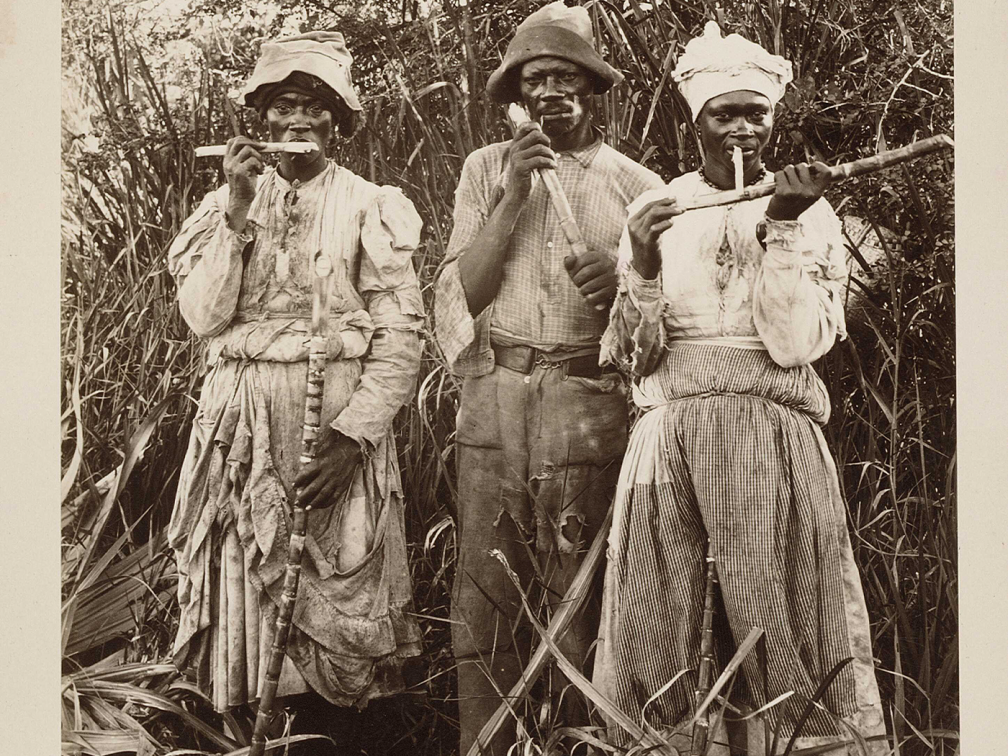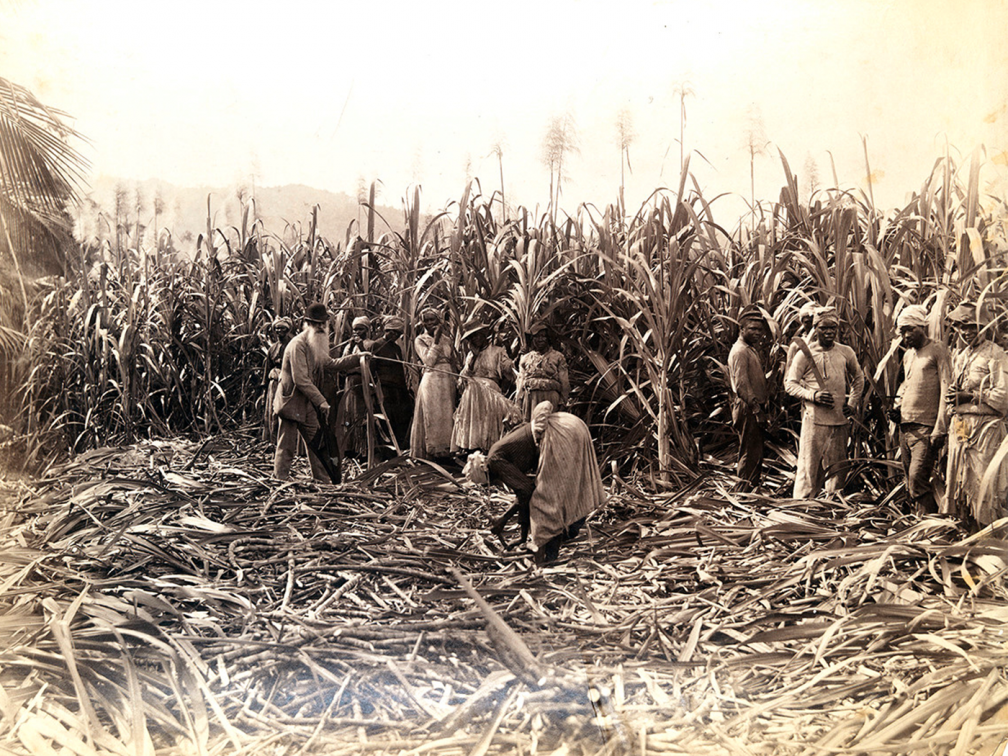This is an extract from a letter written in Jamaica by a young teenager, Karoline Wulf, to a German newspaper in 1836. She was a member of a family trafficked from Germany to Jamaica.
“My fellow-countrymen, under no circumstances must you come to this land called Jamaica. The temperature here is extremely hot and five crowns will only buy you five potatoes. For ten days after my arrival I felt so ill that I could not walk… Let no one deceive you, do not let yourselves be persuaded to emigrate to this place unless you want to starve to death and be dragged down, like us, for ever. I felt I had to write to warn you, because we, unlike you had no choice. The emigration contract was given to us on the ship, when we already left port. And what could we do in those circumstances except sign it?”
Traffic, trading and transfer are words that seem to have a lot in common. They can be used in many contexts in the area of commerce and in respectable interchange of goods and services. In the recent past a new word “trafficking” has emerged to denote events that happen in twilight and shady zones of crime associated with illegal drugs, the movement of people and objects not sanctioned by the formal economy.
The people who carry out such off-limits commerce are called “traffickers” denoting an outlaw, brigand, pirate, body-shopper, snake head, ruffian, rogue and rascal. Their activities are frowned on in this age of so-called civility. In the past such people worked on behalf of European governments. They were “slavers” who managed the slave trade from West Africa to the Caribbean on behalf of European states and business interests.
As the Abolition of Slavery in the Caribbean loomed in the early 1830s the Jamaican plantocracy with the consent of the then colonial government hired two recruiting agents to go to Europe to entice poor white people to come to Jamaica. They were promised farms in the Jamaican highlands. The plan was to force the freed slaves to the lowlands so the sugar plantations would continue to have cheap labour.
Recruiting agents targeted poor areas in Germany. There they recruited Germans, families and single people, five hundred in all, promising them a new life in the United States. However, the ship, The Olbers, on which they were passengers docked in the port of Rio Bueno on the north coast of Jamaica. The passengers thinking it was a United States port disembarked. The ship sailed on leaving them stranded.
News spread of the plight of these Germans. A plantation owner, Lord Seaford, offered them five hundred acres on a mountainside in the parish of Westmoreland. There they used their skills to survive. They built temporary shelters and went about tilling the land to produce basic food. Most of the men were tradesmen and ex-soldiers having little knowledge of cultivation and no knowledge at all about farming in the tropics. The women were skilled and resourceful, quick to adapt tropical food production and innovative in household maintenance and management.
The years after their arrival were extremely harsh. Some died of malnutrition and disease. Initially, they depended on the goodwill, kindness and welcome of the recently freed slaves. There was no Catholic presence in the area. Those among the Germans who were Catholics built a temporary chapel. Others who were of the Lutheran faith associated with the Baptist and Anglican local churches.
The Catholics elected a lay leader to lead their Sunday worship. He later went to Kingston to inform the church leadership of their presence. He requested arrangements to have liturgical celebrations. The church leadership in Kingston was surprised to hear of a vibrant Catholic community in the heart of Westmoreland. The church leadership in Kingston formed a pastoral plan for a parish that became known as Seaford Town.
The late Cardinal Carlo Maria Martini speaking at the World Conference for the Pastoral Care of Migrants and Refugees in 1992 said; “The history of salvation has known unpredictable and mysterious integration of peoples, cultures and races.” However, the human desperation of trafficked people can never be quantified.
As the pastor of Seaford Town in the 1990s I was constantly reminded of the resilience of the human spirit to overcome exploitation and the depravity that accompanies it. It was a constant in the faces of both descendants of the African slaves and the trafficked Germans. Their ability to recognise the goodness in each other’s plight was the community balm that nurtured hope making life tolerable.
This is an extract from another anonymous letter written to the German magazine, Der Sprecher-Rheinisch-Westfalicher Anzeiger, in 1835 by one of the trafficked Germans in Jamaica.
“At the beginning, when we arrived in this distant land, we were very happy. The natives welcomed us very warmly. Then we were taken to the place appointed for us, and we immediately saw that the firewood was unusable and the water undrinkable. Over the following weeks we realised that it would be impossible to grow food on these mountains, but we were ordered, nevertheless, to build our huts on that poor, infertile soil. Now we never have enough food to eat. And we continue to suffer.”
As I read and watch media images of tired, exhausted and worn out men women and children, families, stumble on to beaches, clamber over fences, crawl under border wire, then separated from each other, I ask myself, has anything changed? Why are the destitute used to sow fear and resentment by political leaders, in promoting their popularity? Are we experiencing a global disorder in which migration is a crime, the victim a criminal and welcoming the stranger subversive?


